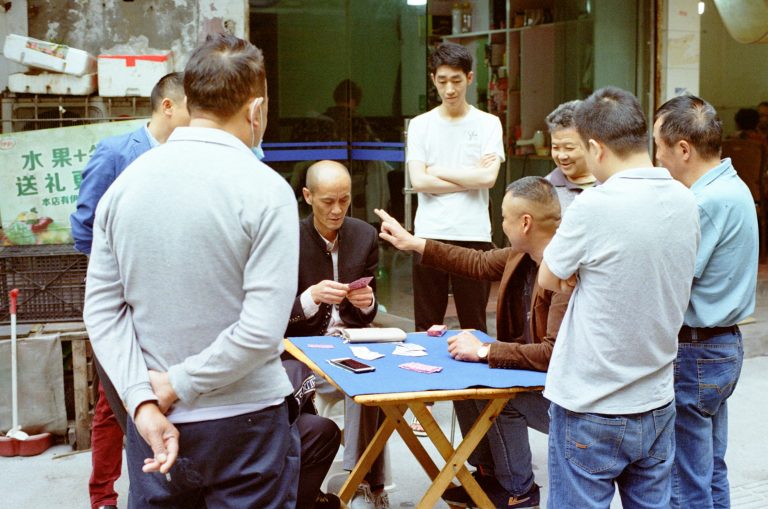I became a Christian while in China in May 2013. But I had been on a spiritual journey for ten years across two continents.
When I first heard about the gospel, I was thirteen and studying at a middle school in Chengdu, China. One of my classmates went to an American summer camp and returned as a Christian. He started sharing the gospel to all of his classmates including me, but I felt angry and harshly accused him of being “corrupted by the Capitalist spiritual opium.” This was what we learned about Christianity in our history class. We were taught that Christianity is a Western religion, and that it was one of the imports forced upon China due to its shameful defeat in the Sino-British War of the 1840s. Young as I was, I was already deeply affected by the atheist, materialistic worldview and the strong nationalistic patriotism heavily embedded in our school curriculum.
When my Christian classmate left my social circle after middle school, Christianity seemed to have faded away. But no, it only came back stronger and in a way that would forever stick with me – for as long as my mom is with me. My mom went to the United States as a visiting scholar in 2008. At first, I was excited about her opportunity to learn from the Americans concerning her research interests in strategic management. Much to my surprise, though, she called my dad and me one day and told us that she decided to become a Christian.
“Are you out of your mind? Why do you need to believe in a religion to console yourself?” I couldn’t help but shout over the transpacific phone call. For the seventeen-year-old me, religion was a mere human invention for weak people who cannot make sense of both the world and themselves and thus seek for external explanations for psychological consolation. “Mom, you are a tenured business school professor who has a loving husband and pretty excellent daughter, so why do you need religion?” I was convinced that my family and I were strong enough to work hard and determine our own happiness and destiny.
Despite my initial annoyance about my mom’s newfound faith, when she came back home, I noticed subtle changes in her. She became more patient with and tolerant of my dad, and she was slower to anger. These changes actually saved my parents’ marriage from the edge of the cliff. That surprised me, but I still did not want to attribute her behavioral changes to her faith.
To fulfill my ambition, I applied to American colleges. Although I tried to rely on my own strength, I actually felt deeply anxious about the outcome. I had no control over which schools would admit me. Sensing my stress, my mom offered to pray for me. She prayed, “Lord, please give my daughter the school that you think fits her the most.” Her prayer amazed me – while other Chinese parents would give their kids a lot of pressure to attend the most prestigious schools, my mom was simply praying for the fittest school for me. At that moment, I felt touched and peaceful.
Ironically, even though I didn’t think my mom had prayed for the best school that I could possibly get into, Harvard College admitted me with a full financial package. Harvard admits only about five to seven Chinese high school students ever year. My admission thus dropped a bomb in the local news. Everyone would ask me, “Why do you think Harvard admitted you?” “What do you think got you into Harvard?” “What does Harvard appreciate about you?”
Speechless, I was also puzzled by these questions! Why did Harvard accept me? Did I have the perfect score? No. Did I have the best resume? No. Am I the child of a powerful family? No. In fact, most of the top universities rejected me! The only rational explanation was, “I got lucky.” That is what I honestly told everyone, and they thought I was just not willing to share my secrets. Yet I hesitated and asked myself – was it pure luck? I recalled my mom’s prayer. Maybe this is a miracle, I thought. But I wasn’t sure if it was a miracle or a highly coincidental event. Therefore, I still could not believe in God.
Even though a miracle did not make me a Christian instantly, it did shake off my strong atheist foundations, and I became curious about faith. I decided to explore it myself, with my own rationality. I began my search for spiritual truth at Harvard. I took some classes in philosophy and East Asian religions because I wanted to learn about every philosophical thought and religion in order to pick a worldview or faith for myself. But I mostly studied only the East Asian religions that I thought would be close to my background and identity.
I intentionally avoided Christianity because my rebellious, or maybe just independent, heart determined not to follow my mother’s path. However, accepting or finding faith is not like shopping for clothes. None of the religions and philosophies I studied resonated with me. They had major metaphysical flaws, incompletions, or ambiguities. I thought choosing a belief would be a highly rational decision, but unsatisfied with the options, I was unable to find a true faith for myself.
Just as I was about to look into Christianity, the student life at Harvard overwhelmed me. Even though Harvard promotes truth seeking, it was not the best place to pause and think. The student life at Harvard may seem glorious, yet it is very overwhelming. I took on an extremely busy schedule. The more I did, the more valuable I felt. Just like any type-A overachiever, I wanted to have it all. I was a science student trying to delve into the field of history, something that is not easy while studying in a second language. I managed to get a very high GPA during my junior year, receive an extremely competitive consulting internship, and co-direct a jazz dance troupe. I was proud of what I could achieve and I was left with no time to continue my spiritual search.
Never miss a story
Additionally, I also felt like I had the moral high ground for my success. I convinced myself that my desire for success was not motivated by material goods, but by the great cause of helping others achieve better lives. I believed that if I could become successful, I would donate money to the poor and help the weak with the skills and social influence I achieved. Essentially, I was fully embracing the classic Secular Humanism so popular in the Ivy League. Making an impact in the world was too important for me, especially when all my classmates were doing all sorts of cool things.
I couldn’t afford to stop my work for some wishy-washy “spiritual exploration.” In fact, I thought of myself as a noble person. In that case, did I still need to have a faith to teach me how to become a good person? I was already good. But what is the ultimate good? What is the ultimate benchmark of a successful Harvard graduate – Bill Gates, John F. Kennedy, Mark Zuckerberg, or some combination of them all? Who should I be?
In the midst of my anxiety, my mom recommended I go to a Bible study. But where should I go to find a Bible study? At that time, only one of my friends was open about her Christian identity. So I turned to her and joined her Bible study group. I did not resonate with the Bible at all, however, because I used the critical reading skills I was so proud to have learned in class to tear apart the text. Additionally, I was convinced by the sophisticated sociological and psychological theories that suggest the Bible is merely a book written by humans to console human beings. Schoolwork continued to get really busy and I failed to attend the Bible study regularly; thus, I could not get its full context. So I gradually stopped going to the Bible study.
Jesus says in Luke 14:11, “For all those who exalt themselves will be humbled.” God always knew how to humble a haughty person like me. Just as I was feeling in control of my future and destiny during my junior year of college, mistakes and life accidents smashed my pride, paused my full-speed advance, and brought me back home to China and to a totally different journey, a journey finally arriving before God. Academically, I had made a mistake out of negligence and the results were terrible. Furthermore, my family back home was facing some difficulties. My paternal grandmother was in the ICU for the second time and seemed unable to come back this time. And regarding post-graduation life, a tremendous sense of confusion still haunted me. So I took a gap year from Harvard and returned home to Chengdu.
Wanxin Cheng grew up in Chengdu, China, and graduated from Harvard College in May 2014. She currently studies at Tufts University near Boston, Massachusetts. This is the first post in a three-part series sharing her spiritual journey. Read her second and third posts this Wednesday and Friday.































